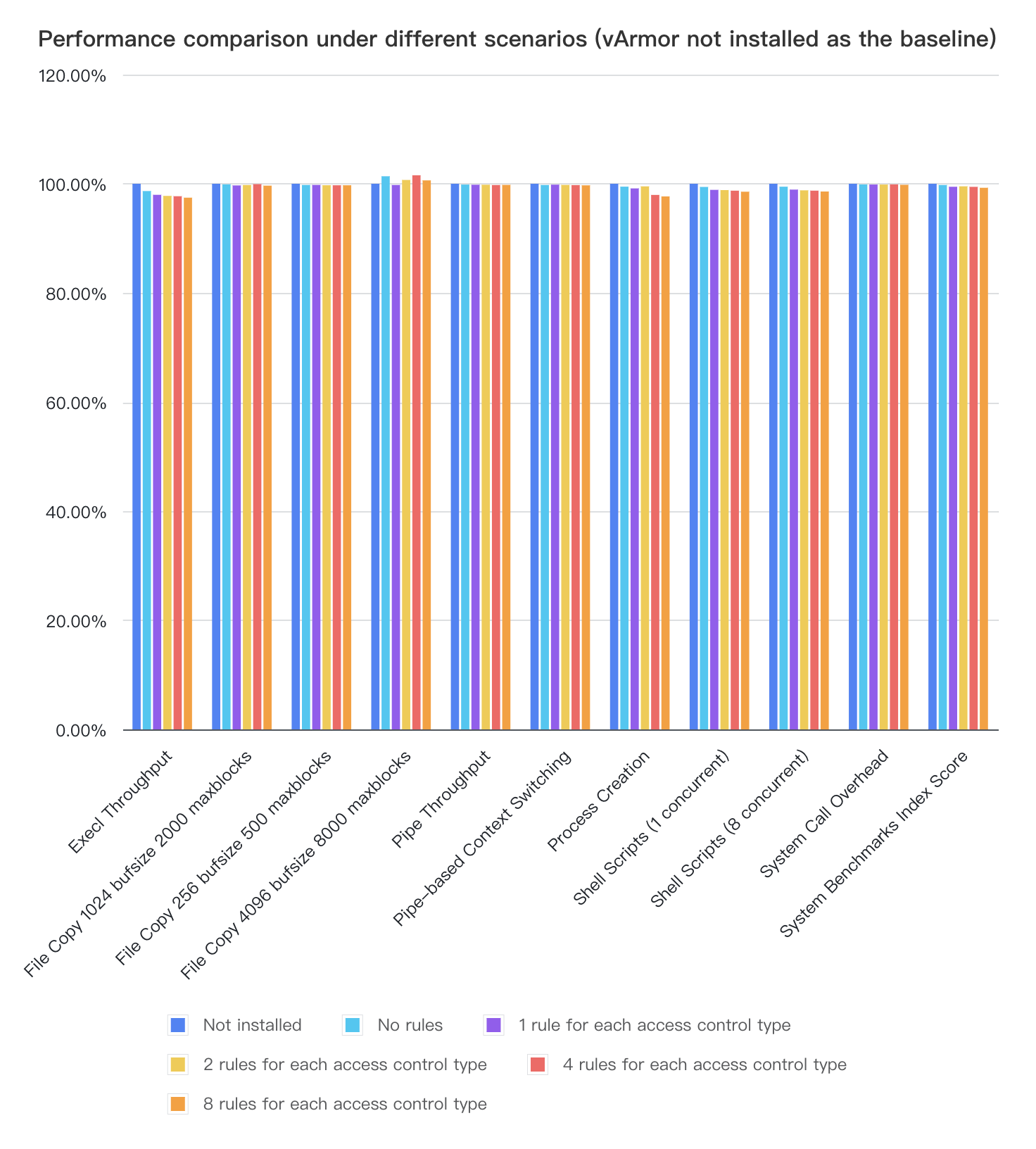BPF Enforcer Benchmark
We conducted a basic performance test of BPF enforcer (v0.5.0) on a VKE cluster with kernel 5.10 using byte-unixbench.
Note: We plan to conduct further comparative testing for typical applications and scenarios in the future.
Test Environment
- Kubernetes version: v1.20.15
- Node number: 2
- The node host has AppArmor and BPF LSM enabled by default.
- Node specification: ecs.g2i.xlarge (4 vCPUs, 16 GiB RAM)
Test Steps
- Deploy a test workload (disabling the default AppArmor profile for the test container via annotation).
- Perform 10 consecutive baseline tests within the test container.
- Install vArmor
- Perform 10 consecutive baseline tests within the test container
- Create a VarmorPolicy for the workload (1 rule for each access control type), then perform 10 consecutive baseline tests within the test container.
- Update the VarmorPolicy (2 rules for each access control type), then perform 10 consecutive baseline tests within the test container.
- Update the VarmorPolicy (4 rules for each access control type), then perform 10 consecutive baseline tests within the test container.
- Update the VarmorPolicy (8 rules for each access control type), then perform 10 consecutive baseline tests within the test container.
- Collect test data, calculate the average of the test data, and then use the test results without vArmor installation as the baseline to measure performance losses under different scenarios.
Test Results
- After installing vArmor v0.5.0, if the container is not sandboxed (or if the container is sandboxed with the AlwaysAllow mode), it introduces a maximum performance loss of 1.34% to container process (in terms of Execl Throughput).
- vArmor v0.5.0 introduces the most significant performance overhead in terms of Execl Throughput and Process Creation. When 8 rules of various access control types are set for container process, the maximum performance loss for execl is 2.55%, and the maximum performance loss for process creation is 2.32%.
- The File Copy 4096 bufsize 8000 maxblocks scores for different test cases fluctuate compared to the baseline, which is unexpected. Possible reasons for this could be:
- When the elastic cloud server is under high load, file copying may be accelerated due to factors like cache heat, leading to fluctuations.
- The host may experience overselling, which can result in fluctuations in baseline test results within the elastic cloud server.
